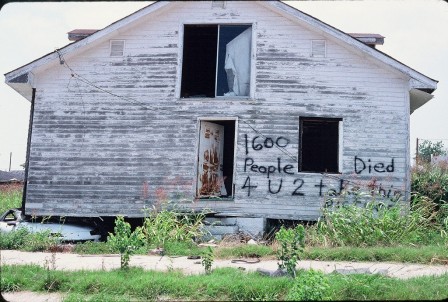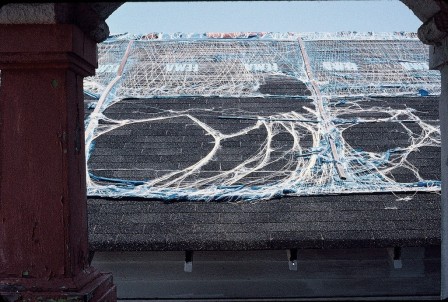New-Orleans & Port-au-Prince: Two Tales Of Government Failures
Today, after the Super Bowl win by the Saints is a day of celebration in New-Orleans. Four and half years after Katrina ran amok on the Crescent City in 2005, New-Orleans is still very much in need not only of a moral boost but also of an economic one.
When the Saints play in New-Orleans, they play at the Super Dome. In 2005, the very same Super Dome became the symbol of our abject collective shortcomings in dealing with natural disasters. The rest of the world was shocked by the spectacle of the only world super power inability to deal with the aftermath of Katrina. The hurricane not only exposed government failures at Federal, State and local levels, but it also lifted the veil of America’s best kept secret: Abject poverty and extreme social injustice.
New-Orleans and Port-au-Prince have strong historical ties. Haiti won its independence from France a bit more than 200 years ago by accomplishing what seemed impossible: defeating the mighty troops of Napoleon. In doing so, Haiti became the first Republic set up by former slaves. The French emperor had the strange perception, after losing Haiti, that keeping Louisiana was somewhat irrelevant. This factor, combined with the great negotiation and diplomatic skills of Thomas Jefferson, drove Napoleon into accepting the offer for what became known as the Louisiana Purchase in 1804. If the former Haitian slaves would have not defeated the French, the sale of Louisiana could have being postponed or may be not even occurred at all.
If Haiti governance was already on “shaky grounds” before the earthquake on January 12, it did not seem to be the case for New-Orleans in August 2005. Yet, both events exposed similar short comings in dealing with emergency situations. The incapacity of FEMA to step up to the plate in New-Orleans became a tragic joke. As far as Port-au-Prince, the scope of the disaster is defying imagination, but some commentators said that “Haiti’s government was a failed one before the earthquake anyway”. But then what is the excuse for the United States of having performed so poorly in New-Orleans in 2005? It is not by lack of means; America is the richest country in the world as opposed to Haiti which is the poorest in the Western hemisphere.
If Haiti relies almost exclusively on foreign aid and remittances send by Haitian expatriates to survive, it is certainly not the case for the United States. However, the responses in both cases, after Katrina in New-Orleans and in the aftermath of the quake in Haiti, were not adequate either in scope, coordination or basic efficiency. New-Orleans is very slowly coming back from Katrina’s destruction, but the recovery effort is still a “work in progress”. Port-au-Prince and Haiti will take decades of concerted international efforts to recover.
In both instances, the problems were and are the ones of systemic governance incompetence, our common lack of political will and our very short attention span in regard to what all of us, globally, should be focusing on. We could accomplish a lot globally if we were not wasting our precious resources on military spending, in the case of the US, and put our coordinated efforts into construction instead of destruction. This is not some sort of Utopian dream or a pie in the sky, but should be a common goal which could be actualized if we, as citizens of the world, really put our minds to it.
Editor’s Note: To view more photographs taken in the immediate aftermath of Katrina, click here. Please follow The News Junkie Post on Twitter.
Related Articles















2 Responses to New-Orleans & Port-au-Prince: Two Tales Of Government Failures
You must be logged in to post a comment Login